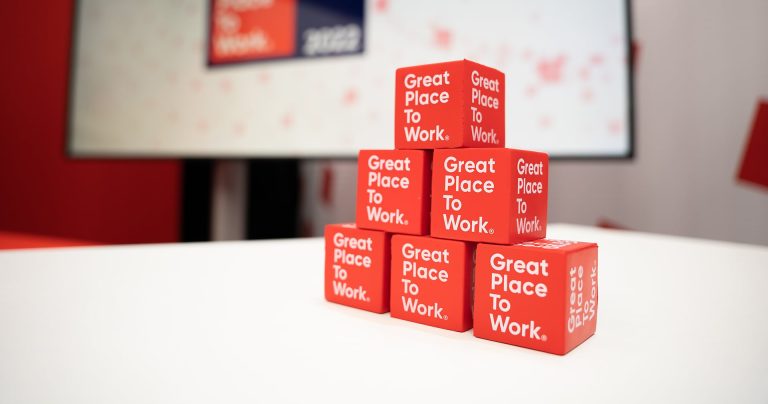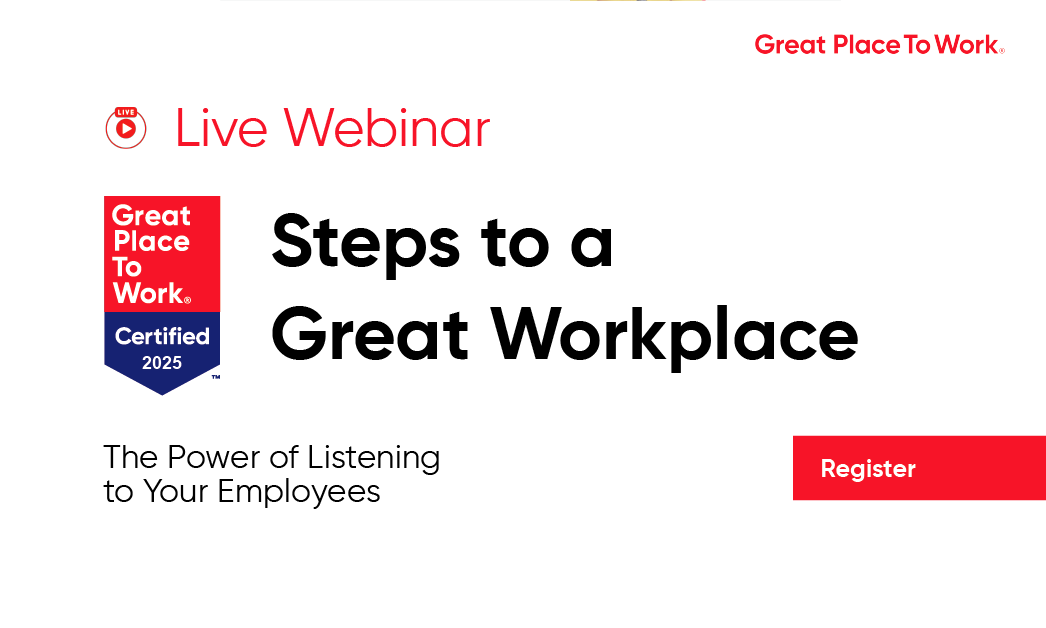Thanking — one of the nine high-trust leadership behaviors — requires leaders to learn about the people on their team and recognize their efforts in unique and creative ways.
Many companies have an employee recognition program, or an award that gets doled out once a month to an employee who goes the extra mile.
However, the best companies don’t just recognize one employee of the month. They ensure every employee is thanked for their unique contributions, both large and small.
The best companies recognize employees’ efforts, even when things don’t go as planned. Great leaders thank employees for their effort and commitment, even when the end results disappoint.
Thanking requires leaders to get to know their people. What are their unique passions and talents? What do they contribute in their role that feels irreplaceable?
The expression must be feel genuine — it can’t be rote, commonplace, or routine. And yet, it must be a habitual and sustained piece of the culture, where every employee is encouraged to recognize and thank colleagues for their hard work.
What takes recognition from “good” to “great”? The best examples acknowledge and celebrate an individual with personalized care.
“Acts of gratitude let people know you’re listening in a way that shows they’re important and essential,” says Michael C. Bush, CEO at Great Place To Work®. When you take time to get to know individual employees — their interests, passions, hobbies, and personal preferences — you can show gratitude in ways that acknowledge the unique gifts they bring to your company.
Giving thanks is also time sensitive. A small, but timely gesture is more meaningful than an elaborate, delayed acknowledgement.
Here are some of the ways Best Workplaces™ make recognition more meaningful, building trust for all employees:
1. Remove barriers to ensure every employee can get recognition
Recognition programs leave some employees behind when they only reward a select set of business achievements or are limited by available communications tools.
Hilton, No. 1 on the Fortune World’s Best Workplaces™ List in 2023, has an always-on “Recognition Matters!” website that offers team members in all roles a path to recognize colleagues. The site provides resources like e-cards, certificates, and thank-you cards, which team members can customize, print, and share.
Crucially for a global organization like Hilton, the resources are translated into 12 languages and are mobile-friendly to meet the needs of a large frontline workforce.
Curious what barriers are preventing your employees from feeling recognized? An employee survey can surface what gaps exist, and which groups of employees are having a harder time getting recognition for their contributions.
2. Make recognition part of regular business operations
Recognition shouldn’t become perfunctory, but it should be a habit, and one that isn’t limited to just a few days a year.
Hilton also makes sure recognition happens 365 days a year with programs like its bi-monthly “Hilton Values Days,” where hotels are encouraged to celebrate a team member who personifies a Hilton value, both in-person and on social media channels.
Hilton even gets customers in on the action with its “Catch Me at My Best” program, where guests can scan a QR code and submit recognition for the service they receive at a hotel. To ensure these programs connect, hotels share “catch” recognition on a variety of channels, including during pre-shift huddles, social media channels, and its “Catch Me Hall of Fame” website.
3. Measure recognition participation
What gets measured, gets done. For companies with recognition platforms and programs, how you measure and incentivize participation can make a big difference.
Texas Health Resources’ program automatically sends monthly reports to managers that remind them how many days it’s been since they last recognized their direct reports on the platform.
At Hilton, team members receive annual ratings and feedback on how they demonstrate each one of the Hilton values, including showing recognition for others.
4. Get creative and leave room for spontaneity
To ensure every employee can get recognition, leaders need to make recognition a habit. How, then, can you prevent recognition from becoming a forgettable and predictable affair?
Great workplaces embrace creativity to make the moment pop.
At the Conrad DC, one of Hilton’s many properties, the team celebrates their top three housekeepers with the highest customer satisfaction scores by appointing them to the “Court of Cleanliness.” Honorees receive flowers and are serenaded by the full team in a special celebration.
Other organizations ensure that leaders have the latitude to celebrate at the drop of hat.
At Bright Horizons, executive team members are empowered to give spontaneous bonuses to those outside of their teams for significant contributions made by members of another team to achieve their goals.
At The Progressive Corporation, No. 54 on the 100 Best in 2023, the Big Wish program allows employees to nominate a colleague to receive a gift from the company as a way to share thanks, without having to be tied to an accomplishment or business performance.
Wish grants can cover a range of items including needed dental work, a day at the spa, a backyard patio, home appliances, and even paying costs associated for someone becoming a U.S. citizen.
To make recognition flexible and universal, great workplaces take great care to identify the behaviors and actions that should be recognized.
“Recognition should have a clear line of sight to your company values and behaviors that are important to your culture,” says Gina Creegan, global head of experience operations at Atlassian, No. 7 on the 100 Best list in 2023. “People need to understand why you are thanking them.”
To ensure employees are thinking about key values and behaviors when recommending a colleague, Creegan advises making employees select a value or behavior for recognition as part of the nomination process.
“For Atlassian, ‘how’ we do work is as important as ‘what’ work we do,” Creegan says. “We encourage Atlassians to recognize how their coworkers get work done.”
5. Make recognition personal
What matters and feels meaningful to one employee will differ greatly from what matters to others.
The actual monetary value of a gift often matters far less than the thoughtfulness behind it. At Nugget Markets, an effort to celebrate team members at a company retreat led organizers to buy metal buckets for each attendee which were filled with tokens of appreciation from both the company and personalized notes and trinkets from others on their team.
Before the meeting, each store director and corporate director took time to write personal notes to everyone on their team who would attend the meeting and provide thoughtful tokens unique to their relationship with that person.









